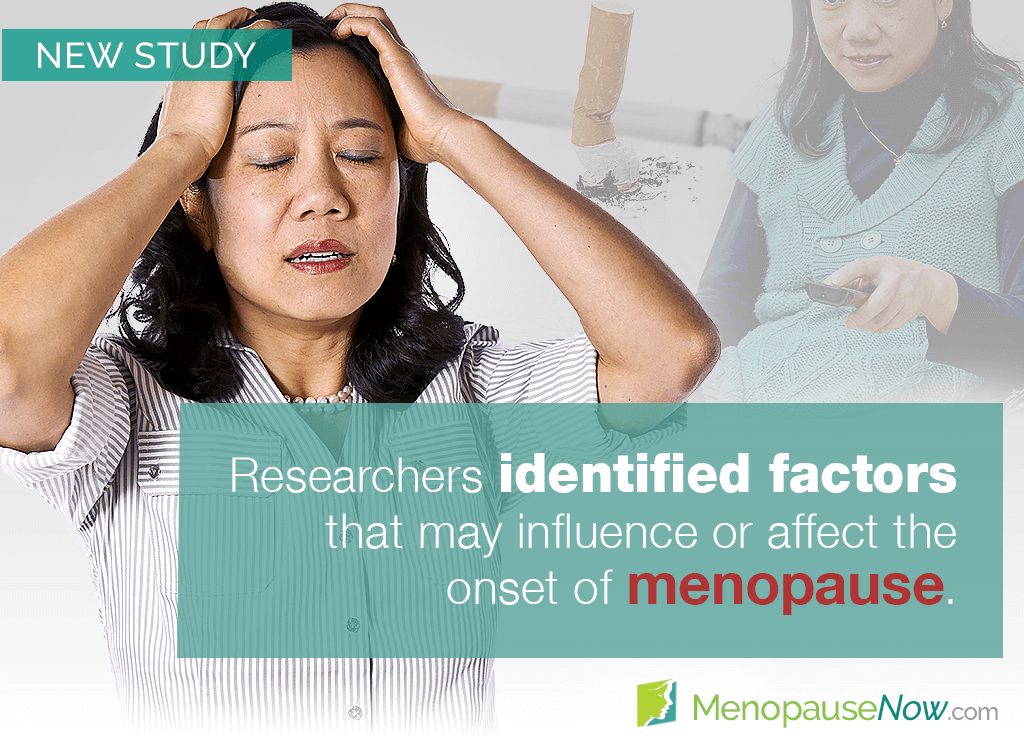It is universally accepted that menopause is a natural phase in every woman's life that happens independently of her control, particularly the time of its onset.
Yet, science has been interested in identifying potential factors that may predict or influence women's age at menopause and affect their quality of life during this life phase.1 To bring more clarity to this topic, Chinese researchers conducted a comprehensive Shanghai Women's Health Study on middle-aged women.
Study Design
33,054 Chinese postmenopausal women at the average age of 60 participated in this prospective cohort study. Only women who had experienced natural menopause were included in the trial.
Extensive data was collected from participants, including their lifestyle, medical and reproductive history, dietary habits, previous weight patterns, physical activity, and socioeconomic characteristics.
Study Findings
Most women in the study experienced natural menopause between the age of 40.6 and 50, with the average age of 49.2. Their reproductive years (menarche to menopause) ranged from 31.6 to 36.7.
In terms of socioeconomic factors, women with lower education and manual work entered menopause earlier and had fewer reproductive years. Opposite patterns were seen in married women.
In regards to reproductive history, later menopause and a longer reproductive span were observed in women who had their first periods before the age of 11, breastfed extensively, and who gave birth to several children. Those with lifelong irregular period patterns were associated with fewer reproductive years.
As to lifestyle and dietary habits, women who engaged in moderate- to high-intensity exercise during adolescence and adulthood were more likely to enter menopause at a later age and had more reproductive years. These patterns were also linked to higher intakes of fruits, protein, and carbohydrates as well as regular tea consumption. Smoking for more than 28 years was also strongly linked to early menopause and a shorter reproductive span.
What Does It Mean?
Researchers in this extensive study successfully identified factors that may influence or predict the onset of menopause, including reproductive history, dietary habits, weight gain or loss tendencies, and lifestyle patterns of physical activity, among others.
Because entering menopause comes with new health risks, studies focusing on identifying menopause onset predictors could provide useful information in terms of preventing diseases and reducing many of those postmenopausal risks.
While women still do not have control of many of the aforementioned factors, they can improve practices relating to their lifestyle and dietary habits. This could not only potentially prevent early menopause, but also nourish the body and the mind to pass through this natural phase feeling strong and empowered.
Sources
- Menopause. (2009). Dietary and lifestyle predictors of age at natural menopause and reproductive span in the Shanghai Women's Health Study. Retrieved September 22, 2020 from https://www.ncbi.nlm.nih.gov/pmc/articles/PMC2615483/
Footnotes:
- Turkish Journal of Obstetrics and Gynecology. (2015). Factors affecting age of onset of menopause and determination of quality of life in menopause. Retrieved September 22, 2020 from https://www.ncbi.nlm.nih.gov/pmc/articles/PMC5558404/

